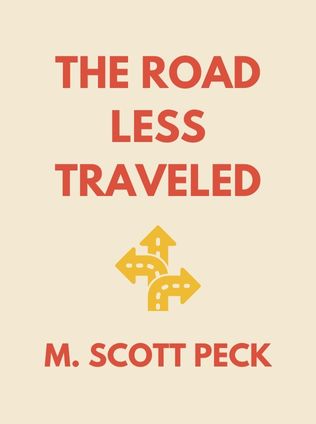
The Road Less Traveled
A New Psychology of Love, Traditional Values and Spiritual Growth
By M. Scott Peck
Published 01/1978
About the Author
M. Scott Peck, a renowned American psychiatrist and psychotherapist, was a pioneering figure in integrating psychology with spirituality. Born in 1936, Peck’s early life was marked by his own struggles with discipline and purpose. These personal challenges would later inform his unique approach to psychotherapy, where he combined his medical expertise with deep spiritual insight. He was not just a doctor of the mind, but also a healer of the soul, seeking to bridge the gap between mental health and spiritual well-being.
Peck’s most famous work, "The Road Less Traveled," published in 1978, became an instant classic and remained on the New York Times bestseller list for over a decade. The book’s impact was profound, resonating with millions of readers worldwide who were searching for deeper meaning in their lives. Peck’s writing is characterized by its candidness and depth, as he doesn’t shy away from discussing the difficulties of life and the hard work required to grow spiritually. His work continues to inspire those who seek to understand themselves and their place in the world more deeply.
Main Idea
"The Road Less Traveled" is more than just a self-help book; it is a spiritual guide that challenges readers to face the realities of life with courage and discipline. At its core, the book argues that the purpose of life is spiritual evolution. According to Peck, true mental health cannot be achieved without spiritual growth. The journey towards this growth is often arduous, filled with challenges that test our resolve. However, it is through overcoming these challenges that we develop deeper self-knowledge and move closer to spiritual enlightenment.
Peck’s book is structured around four main themes: discipline, love, personal religion (worldview), and grace. These themes are interconnected, each one supporting the others in the process of spiritual development. Peck posits that by mastering these elements, individuals can navigate life’s difficulties, grow spiritually, and ultimately find true peace and happiness.
Table of Contents
- Introduction: The Journey of Spiritual Growth
- Part One: Discipline
- Part Two: Love
- Part Three: Growth and Religion
- Part Four: Grace
- Conclusion: The Road Less Traveled
Introduction: The Journey of Spiritual Growth
The journey of spiritual growth is the central theme of Peck’s work. He begins by stating a fundamental truth:
"Life is difficult. This is a great truth, one of the greatest truths." - M. Scott PeckThis opening statement sets the tone for the entire book, emphasizing that life’s challenges are not only inevitable but also necessary for growth. Peck believes that the difficulties we face are the catalysts for our spiritual evolution. By confronting and overcoming these challenges, we are able to grow in wisdom and understanding.
Peck argues that most people try to avoid the difficulties of life, seeking comfort and ease instead. However, this avoidance leads to stagnation and prevents spiritual growth. He writes,
"Problems do not go away. They must be worked through or else they remain, forever a barrier to the growth and development of the spirit." - M. Scott PeckThis perspective is a call to action, urging readers to embrace life’s challenges as opportunities for growth rather than obstacles to be feared.
Part One: Discipline
Discipline is the cornerstone of spiritual growth according to Peck. Without discipline, the challenges of life become insurmountable, leading to suffering and despair. Peck identifies four essential components of discipline:
Sign up for FREE and get access to 1,400+ books summaries.
You May Also Like
The Subtle Art of Not Giving a F*ck
A Counterintuitive Approach to Living a Good Life
By Mark MansonRich Dad Poor Dad
What the Rich Teach Their Kids About Money - That the Poor and Middle Class Do Not!
By Robert T. KiyosakiHow To Win Friends and Influence People
The All-Time Classic Manual Of People Skills
By Dale CarnegieFreakonomics
A Rogue Economist Explores the Hidden Side of Everything
By Steven D. Levitt and Stephen J. Dubner



















